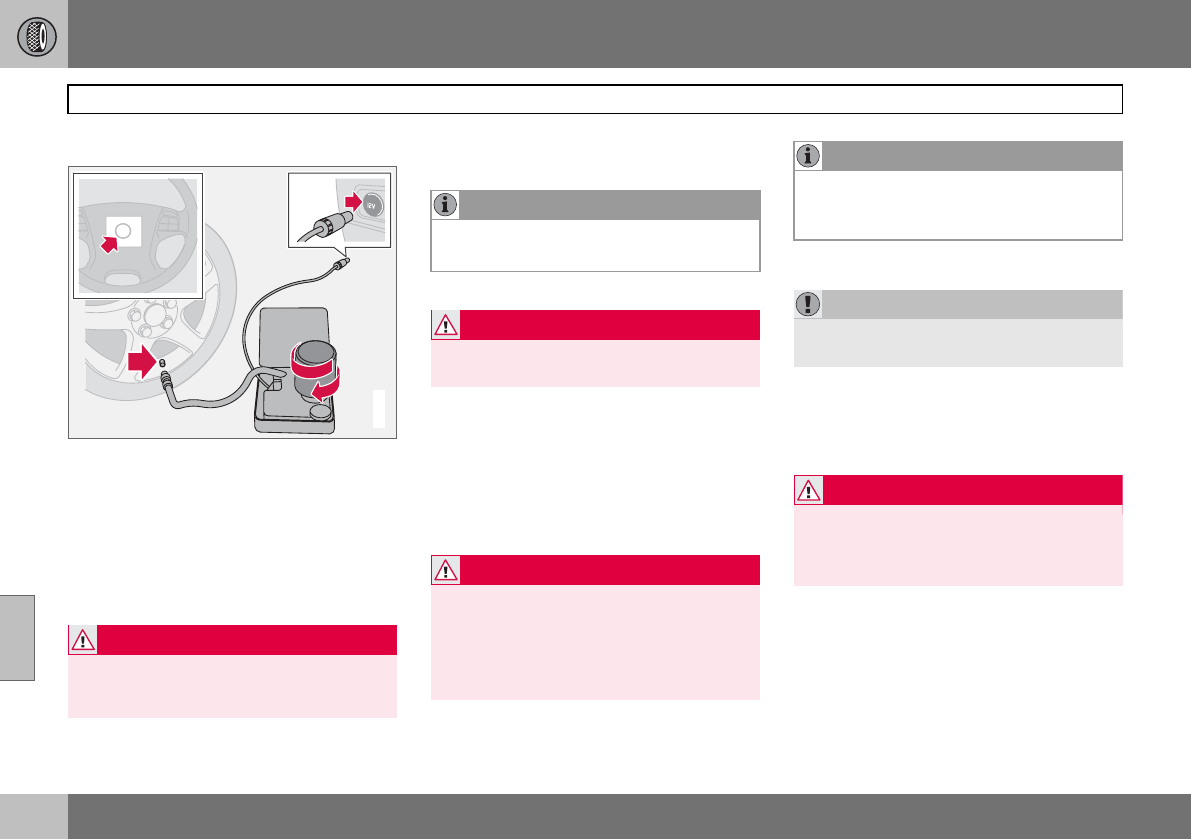
07 Wheels and tyres
166
Emergency puncture repair
07
Sealing punctured tyres
For information on the function of the parts, see
the illustration on page 165.
– Open the lid of the emergency puncture
repair kit.
– Detach the decal for maximum permitted
speed and affix it to the steering wheel.
– Check that the switch is in position 0 and
locate the cable and the air hose.
– Unscrew the orange cap and unscrew the
bottle’s stopper.
– Screw the bottle into its holder.
– Unscrew the wheel’s dust cap and screw
in the air hose valve connection to the
bottom of the thread on the tyre’s air
valve.
– Plug the cable into the 12 V socket and
start the car.
– Flick the switch to position I.
– Inflate the tyre for 7 minutes.
– Switch off the compressor to check the
pressure on the pressure gauge. Minimum
pressure is 1.8 bar and maximum is
3.5 bar.
– Switch off the compressor and unplug the
cable from the 12 V socket.
– Detach the hose from the tyre’s air valve
and fit the valve’s dust cap.
– As soon as possible, drive approximately
3 km at a maximum speed of 80 km/h so
that the sealing fluid can seal the tyre.
WARNING
The sealing fluid can irritate the skin. In the
case of contact with skin, wash away the
fluid with soap and water.
80
50
G019723
NOTE
Do not break the bottle seal. The seal is bro-
ken when the bottle is screwed in.
WARNING
Do not unscrew the bottle, it is equipped
with a reverse catch to prevent leakage.
WARNING
Never stand next to the tyre when the com-
pressor is running. If cracks or unevenness
arise then the compressor must be
switched off immediately. The journey
should not be continued. Contact an
authorised tyre centre.
NOTE
When the compressor starts, the pressure
can increase up to 6 bar but the pressure
drops after approximately 30 seconds.
IMPORTANT
Risk of overheating. The compressor must
not run for more than 10 minutes.
WARNING
If the pressure is below 1.8 bar then the
hole in the tyre is too big. The journey
should not be continued. Contact an
authorised tyre centre.


















